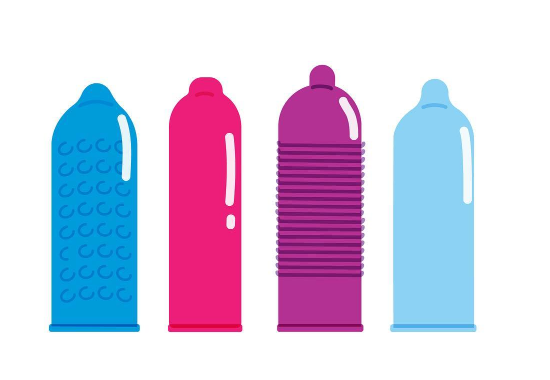The Raw Truth
 Humans travel in flocks, and most of us tend to be followers rather than leaders, which leads us to perpetuate habits harmful to our survival long after we know they might kill us. Often we choose to risk our survival odds in order to avoid, let’s say, social suicide. In cigarette smoking, we knew the dangers long before the no-smoking zones in restaurants. In condom wearing, there is a similar trend of accepting bliss in ignorance. Is this mentality the reason that college students choose to play Russian roulette with their sex lives? Is it why only shortly after the 90’s AIDS crisis and the intense rise of condom usage, STD’s have risen yet again—to the highest they’ve been in 20 years?
Humans travel in flocks, and most of us tend to be followers rather than leaders, which leads us to perpetuate habits harmful to our survival long after we know they might kill us. Often we choose to risk our survival odds in order to avoid, let’s say, social suicide. In cigarette smoking, we knew the dangers long before the no-smoking zones in restaurants. In condom wearing, there is a similar trend of accepting bliss in ignorance. Is this mentality the reason that college students choose to play Russian roulette with their sex lives? Is it why only shortly after the 90’s AIDS crisis and the intense rise of condom usage, STD’s have risen yet again—to the highest they’ve been in 20 years?
This year, in addition to the overall stark rise of STD’s, the CDC found that chlamydia, gonorrhea and syphilis have become increasingly prevalent among college and high school students—about half of the diagnosed cases this year were in people between the ages of 15-24. Meanwhile, about half of college students aren’t using condoms, according to the Sex Information and Education Council of Canada.
With a hookup culture as entangled as limbs, Syracuse University is no exception to this. While theoretically there is no proof that multiple partners lead to poor health, this practice does increase the risk for STD’s, simply by mere odds. The interconnected web of unprotected hookups around campus may not be the safest fields to play in.
We asked students what they thought of this. Some students believe that the rise in STD rates this year may be partly due to a replacement of condoms with birth control, which would mean that essentially, people have forgotten from 6th grade health class that birth control does not protect against AIDS and other STD's. Interestingly, this theory has some grounds considering the diminishing teenage pregnancy rates in the U.S. despite the rising STD rates. One female college senior explained, “…The guy that I’m hooking up with now, he wasn’t even concerned about the STD part with the condom, he was more concerned about the pregnancy part. Which is funny because…I don’t think of condoms with pregnancy.”
So while birth control is solely for contraception, people might feel relief in the safety net that they do use. “I think that now it’s so easy to take birth control and not worry about the pregnancy part that people kind of forget about the STD part. They think, ‘Oh yeah, I don’t need to use a condom. I’m safe.’”
What’s turning people off from condoms? NPR claimed it was a relationship phenomenon in 2008, dubbing an episode of their show “Sex without condoms is the new engagement ring.” The segment explored how young people have defined commitment and trust as protection-less sex. Sometimes, it can even be a cause for relationship problems or judgment to propose using protection. Hence: humans travel in flocks.
“I was at after hours one night,” says one junior from SU, “and one guy was asking around for a condom, but everyone was like, ‘What do you need a condom for? Isn’t that why you have a girlfriend?’”
Most people have come to accept condomless sex, to the point where sometimes it’s weird to use protection. Their preferred method is to raw-dog it.
Some justify it as just a better sensation. James*, 21, says, “Bareback sex just feels better.” He says that he’s only been condomless while in relationships, and he usually asks his partners if they have ever been tested. When asked if they usually say yes, he replies, “I mean I ask them. I don’t ask for documentation.”
While some strains of gonorrhea and chlamydia are curable, many strains are now becoming resistant to the pills and treatments available. Some are now incurable and have life-long consequences. Infertility, chronic pain and increased risk for HIV/AIDS can be the results of untreated STD’s.
Assistant professor of pediatrics Dr. John Steever told TIME, “There’s a lack of fear... That lack of forward-thinking is what we are running up against.” And while fear may not be the best motivator, it may have worked in the 90’s more than tactics today.
So maybe we don’t need 90’s-style PSA’s that carry threats about death, but certainly awareness tactics are not effective as they could be. The fact remains that many STD’s can stay with you for a lifetime. So if you can’t picture yourself comfortably telling all your future sex partners (oral, anal, or vaginal) that you have something they might not want, reconsider how uncomfortable the condom is this time.
Testing can be done at any regular doctor visit, Syracuse University Health Services or at the local Planned Parenthood.

